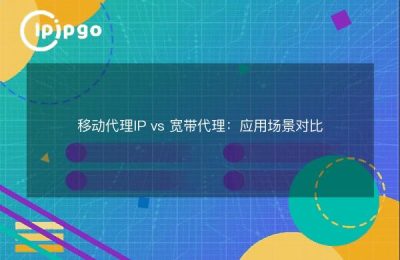
Why Enterprise Proxy IP Must Focus on Compliance Agreements?
When enterprises choose proxy IP services, they should first pay attention to the compliance qualification of service providers. Taking ipipgo as an example, its proxy IP resources are obtained through legal means and formal cooperation agreements are signed with global carriers to ensure that users will not be triggered by legal risks due to IP source issues in the course of use. Unlike some service providers in the market that obtain IPs through technical means in violation of the law, the residential IPs provided by ipipgo are fully compliant with the requirements of the Data Security Law and the Personal Information Protection Law.
Business users should pay particular attention to whether the service provider hasFull audit trail capability. When the business needs to trace back the historical usage records of specific IPs, ipipgo's system supports operation log querying accurate to the minute level, which is crucial when responding to data security review or business anomaly troubleshooting. For example, when an e-commerce company conducted market research, it successfully avoided legal disputes arising from data collection behavior through ipipgo's compliant IP pool.
How do SLA service agreements guarantee business continuity?
SLAs (Service Level Agreements) for enterprise-level proxy IP services must contain three core metrics:Availability commitments, fault response timescales, service quality compensationThe SLA agreement of ipipgo explicitly commits to a monthly availability rate of 99.9%, which is a leading level in the industry. In order to achieve this goal, its technical architecture is designed with multiple guarantee mechanisms:
| Safeguard dimension | implementation method |
|---|---|
| Network redundancy | 13 globally deployed backbone nodes for mutual disaster recovery |
| IP Health | Automatically check IP availability every 15 minutes |
| traffic scheduling | Intelligent allocation of optimal routes based on geographic location |
When faced with unexpected network fluctuations, ipipgo's intelligent routing system is able to complete failover within 200 milliseconds. After a financial technology company used its services, business interruption time dropped from a monthly average of 4 hours to less than 10 minutes in total for the year.
Dynamic vs. static IP compliance application scenarios
ipipgo provides both dynamic and static residential IPs, and the boundaries of compliant use of both require special attention:
dynamic IPFor scenarios where real user behavior needs to be simulated, for example:
- Cross-regional service testing
- Data Compliance Collection
- Distributed system validation
static IPIt is then more suitable for long-term stable business needs, for example:
- API docking for fixed geographies
- Dedicated IP Whitelist Configuration
- Ongoing monitoring of specific areas
A multinational logistics company successfully established a secure and stable data transmission channel for the ERP systems of its 20 subsidiaries around the world through ipipgo's static IP service, and at the same time, fully met the data compliance requirements of each country of origin.
Frequently Asked Questions
Q: What is the essential difference between building my own proxy server and using ipipgo?
A: Self-built servers have limited IP resources, high operation and maintenance costs, and uncontrollable compliance risks. ipipgo's global residential IP pool is not only 90 million+ in size, but also achieves compliance scheduling through carrier-grade technical guarantees.
Q: How do you handle sudden high concurrency demands of your business?
A: ipipgo's elastic scaling mechanism supports minute-level resource provisioning, and with intelligent QoS flow control, it can ensure service stability under bursty traffic. A live streaming platform smoothly supported the traffic growth of 300% during the 618 promotion through this feature.
Q: How do I verify the real residential properties of a proxy IP?
A: ipipgo provides IP traceability verification service, you can check the IP registration information through the carrier cooperation channel. Meanwhile, its IPs are all generated by real dialing through home broadband routing, with complete ASN registration records.








